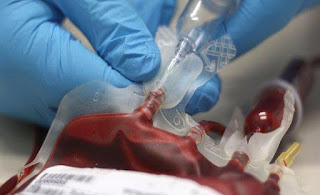Advancing Pancreatic Cancer Therapeutics: Breakthroughs and Innovations
Pancreatic cancer remains one of the most challenging and aggressive forms of cancer, presenting significant obstacles to successful treatment and patient survival. However, in recent years, groundbreaking advancements in therapeutics have emerged, offering hope and potential new avenues for managing this deadly disease. In this blog, we will explore some of the remarkable breakthroughs and innovations that are driving the field of pancreatic cancer therapeutics forward.
Targeted Therapies: Precision Medicine Takes the Lead
One of the most significant developments in pancreatic cancer treatment is the rise of targeted therapies. Rather than a one-size-fits-all approach, precision medicine utilizes molecular profiling and genetic testing to identify specific genetic alterations in a patient's tumor. Armed with this information, oncologists can tailor therapies that target the unique characteristics of each tumor, maximizing effectiveness and minimizing side effects.
Immunotherapy: Unlocking the Immune System's Potential
Immunotherapy has revolutionized cancer treatment across multiple types of cancer, and its potential in pancreatic cancer is no exception. By stimulating the patient's immune system to recognize and attack cancer cells, immunotherapy has shown promise in increasing survival rates and offering new hope for patients with advanced stages of the disease.
Nanomedicine: Delivering Precision and Efficiency
Nanotechnology has paved the way for innovative drug delivery systems in pancreatic cancer therapeutics. Nanomedicine involves encapsulating anti-cancer drugs in nanoparticles, allowing for targeted delivery directly to the tumor site. This approach enhances drug effectiveness while reducing systemic toxicity, improving patient outcomes and quality of life.
Combination Therapies: A Multi-Pronged Attack
Given the aggressive nature of pancreatic cancer, combining different treatment modalities has become a key strategy. Oncologists are exploring combinations of chemotherapy, targeted therapies, immunotherapy, and radiation therapy to create a synergistic effect, attacking cancer cells from multiple angles and potentially overcoming resistance mechanisms.
Liquid Biopsies: Non-Invasive Monitoring
Liquid biopsies, a non-invasive diagnostic tool, are transforming the way we monitor pancreatic cancer treatment response. These tests analyze circulating tumor DNA and other biomarkers present in blood samples, providing real-time insights into treatment efficacy and disease progression. Liquid biopsies enable quicker adjustments to treatment plans, ensuring patients receive the most effective therapies at the right time.
Personalized Vaccine Therapies: Tailoring Immunization
Personalized vaccine therapies represent a novel approach in pancreatic cancer treatment. By creating vaccines based on a patient's tumor antigens, researchers aim to stimulate the patient's immune system to target and eliminate cancer cells specifically. While still in early stages, this therapeutic avenue shows great promise in boosting the body's natural defenses against pancreatic cancer.
In conclusion, the landscape of pancreatic cancer therapeutics is witnessing a transformative shift, with breakthroughs and innovations offering renewed hope for patients and healthcare professionals alike. From targeted therapies and immunotherapy to nanomedicine and liquid biopsies, these advancements are steering the field towards a more personalized and effective approach to treating this formidable disease. As research continues and technology evolves, the future holds the promise of further refining pancreatic cancer treatment strategies, bringing us closer to improved patient outcomes and the ultimate goal of finding a cure.




Comments
Post a Comment